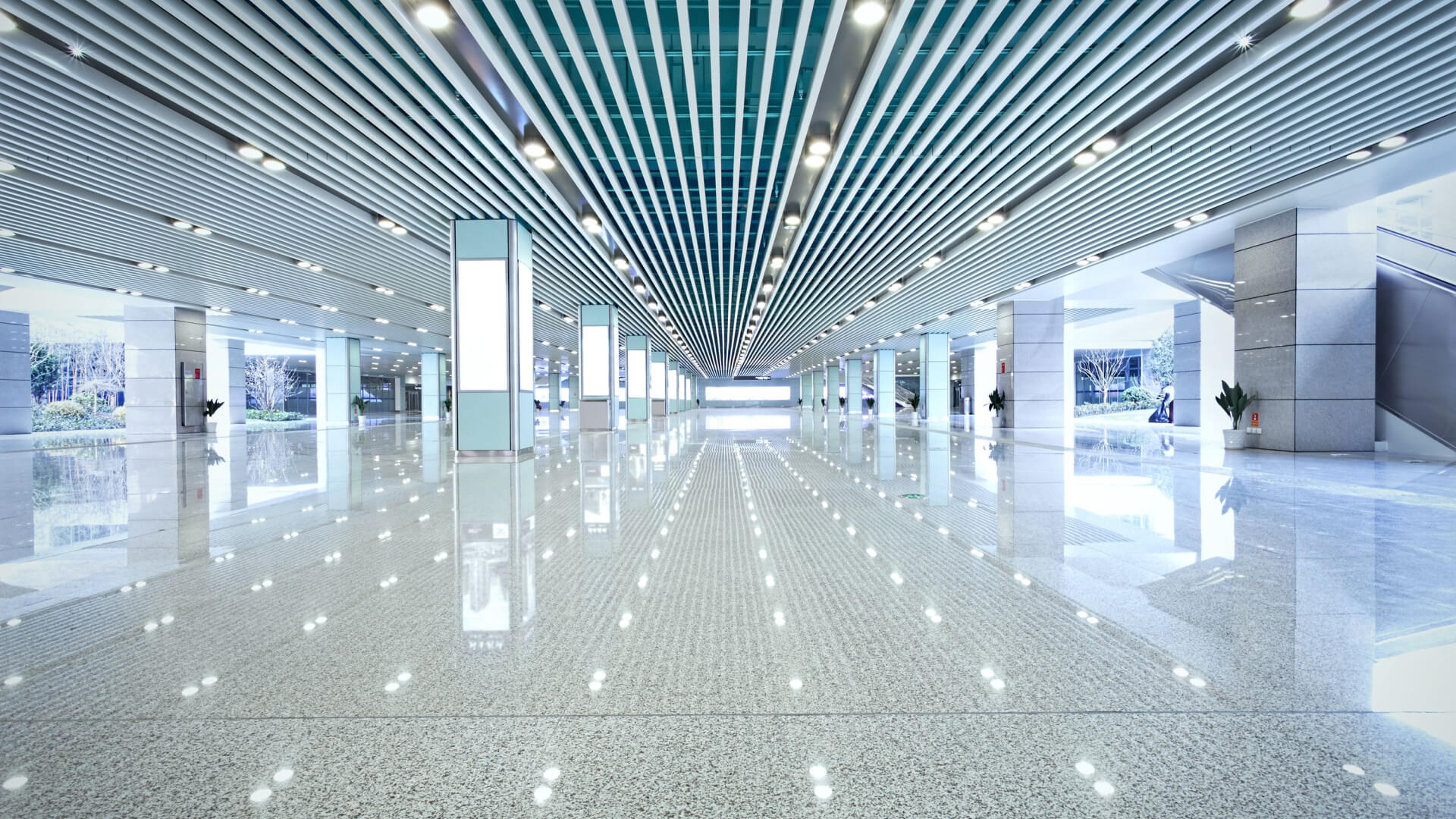
People underestimate the importance of light and how it affects employees and the functionality of the workplace overall. It can be an easy mistake to think that the principles of commercial lighting are the same as residential lighting, but they couldn’t be more different.
Commonwealth Energy Group, LLC understands the differences between residential and commercial lighting. We can audit your business to create and install an energy-efficient lighting system that provides everything you need.
The Core Difference Between Commercial and Residential Lighting
The core disparity between residential and commercial lighting is the purpose and scale. Residential lighting is personal and intimate, designed to enhance a home environment through a balance of aesthetics and comfort.
By comparison, commercial lighting is fundamentally about practicality, ensuring that spaces are well-lit and that the business’s operations can proceed without any hindrances.
Residential Rationale
In homes, lighting is about function and emotion. It must illuminate spaces for living, working, and playing, while also contributing to the overall look and feel the owner wants. This can take the form of warm, inviting lights in the living room, bright task lighting in the kitchen, and dim, soothing lights in the bedroom.
Commercial Calls to Light
For businesses, the primary objective is to create an environment where work can be done efficiently and effectively. Whether it’s a softly lit restaurant that sets a relaxing tone or brightly lit office spaces to enhance productivity, the lighting in commercial settings must be carefully planned to serve the business’s operational and branding goals.
Light Design Philosophies
The way lighting is designed in residences versus commercial spaces reflects the unique priorities and usage patterns of each.
Home Design Philosophy
Home lighting designs are often more personalized and flexible, reflecting the individual tastes of homeowners. It can involve a blend of ambient, task, and accent lighting to create layers of light and bring out the best in the home’s architecture and interior design. Chandeliers, sconces, and trendy pendant lights are common features that help to make a statement.
Businesses Design Philosophy
In commercial settings, lighting design is strategic, aiming to create a space that is conducive to a business’s needs within a given industry. This could mean modular office lighting for adaptability, theatrical lighting for retail spaces, or energy-efficient solutions that minimize operating costs for large areas.
Being Energy-Efficiency in Every Watt
Advancements in technology significantly impact energy efficiency in both residential and commercial spaces. Here, we can see similarities in ideology but not in execution.
Residential Energy-Efficiency
While homes are generally smaller and have simpler lighting requirements, the increased focus on energy-efficient products, such as LED bulbs, has significantly lowered the ecological footprint of residential lighting solutions.
Commercial Energy-Efficiency
The average, large commercial spaces consume significantly more energy than the average home. This makes the adoption of energy-efficient lighting systems a critical priority. Advanced control systems, motion sensors, and the use of daylight harvesting are just a few strategies we can employ to manage energy consumption in commercial buildings.
Shedding Light on Costs
The cost analysis of lighting is multifaceted, taking into account installation, maintenance, operation, and the life cycle of the lighting system. This is important for both residential and commercial lighting systems, as the styles of installation, maintenance, and life cycle of both systems would be different.
Residential Lighting Costs
Home lighting systems are often less complex than commercial ones. This can translate into lower initial installation costs compared to commercial systems. However, when considering the frequency of bulb replacements and energy consumption over time, the cost picture becomes more nuanced.
Commercial Complexities
Commercial lighting systems are often more robust and integrated than residential ones. This is one of the reasons they can come with higher upfront costs. These systems are also designed for longevity and cost savings in the long run, more than residential lighting systems. Commercial lighting is seen as an investment that can yield significant operational cost reductions.
The Technology Behind Lighting Systems
Technology is driving a significant shift in both commercial and residential lighting with the rising popularity of smart lighting systems. These systems improve functionality, increase energy efficiency, and offer more special features.
Homes Lighting Technology
Smart home lighting systems are becoming more sophisticated, offering homeowners the ability to control lighting with smartphones, create schedules, and even adjust color temperatures. The focus is on user-friendliness and creating customizable experiences.
The Brilliance of Commercial Tech
Commercial lighting technology is not far behind, providing even more elaborate control over lighting systems for complex operations. This can include things such as:
- Remote monitoring
- Detailed energy reporting
- Temperature control
- Light dimming
We utilize this technology to maximize efficiency and minimize downtime.
Making the Right Choice in Light
The comparison between commercial and residential lighting is not about determining which is better, but rather understanding the distinct needs and applications of each. For homeowners, personalization and comfort are key. For businesses, lighting is a strategic tool for enhancing the customer experience and optimizing operations.
When choosing a lighting system for your business, it’s important to consider these differences. A comprehensive energy audit is a great way to ensure you choose a lighting system that fits your needs. Residential buildings require similar lighting solutions, but two businesses in two different industries will likely require completely different lighting systems. For a team that has extensive experience with a variety of commercial lighting systems, contact Commonwealth Energy Group, LLC today.





